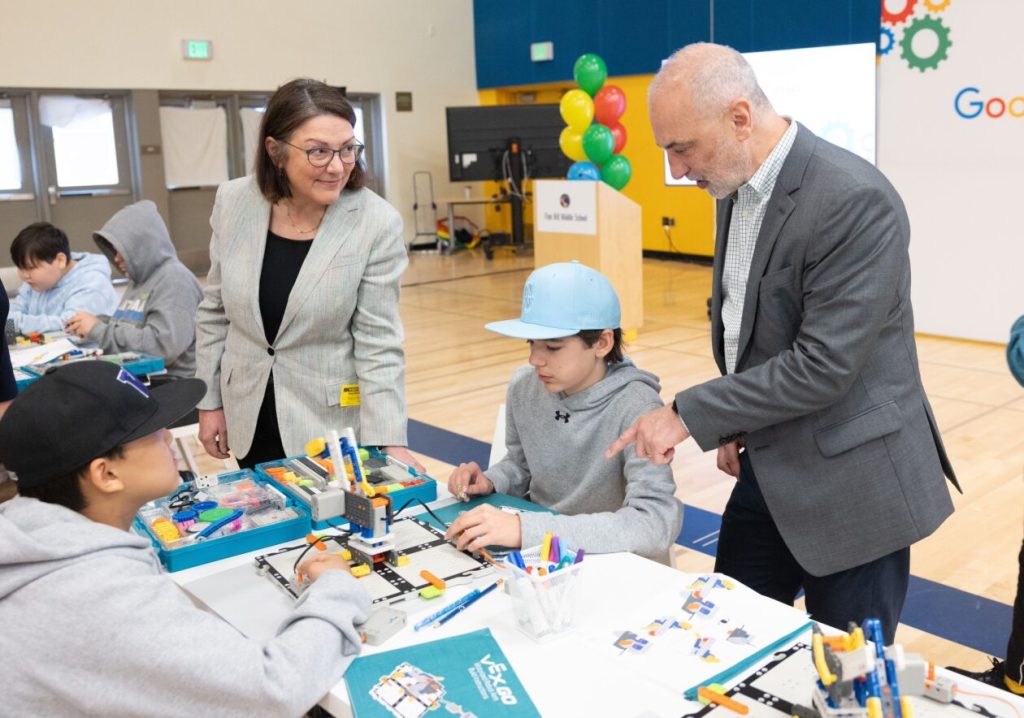Google’s philanthropic arm recently announced a $500,000 grant to expand access to robotics and artificial intelligence education programs in Washington state middle schools. In collaboration with non-profits Robotics Education & Competition Foundation (RECF) and For Inspiration and Recognition of Science and Technology (FIRST), the grant will support 1,234 new or existing robotics clubs in Washington and impact over 8,900 students over three years. The announcement was made at an event at Finn Hill Middle School in Kirkland, Wash., where students were engaged in hands-on STEM activities with Google employee volunteers.
At the event, U.S. Congresswoman Suzan DelBene emphasized the importance of investing in programs like these to educate future leaders in robotics and AI. She highlighted how such programs provide young people with opportunities to innovate, develop new skills, and pave the way for successful futures. This investment is part of a larger $10 million initiative launched by Google.org to support FIRST and RECF in communities where Google has a presence, demonstrating the company’s commitment to promoting STEM education and empowering students to excel in these fields.
Google’s partnership with non-profits like RECF and FIRST aims to increase access to robotics and AI education in middle schools across Washington state, ultimately impacting thousands of students and helping them develop essential skills for the future. Through the grant, new robotics clubs will be established and existing ones will receive support to enhance their programs and reach a larger student population. This initiative not only benefits the students directly involved but also contributes to fostering a culture of innovation and technological advancement in the region.
The event at Finn Hill Middle School in Kirkland, Wash., showcased the impact of hands-on STEM education and how it can inspire students to explore robotics and AI. With Google employees volunteering their time to engage with students and facilitate robotics projects, the event provided a valuable experience for the young participants. By offering access to resources and mentoring from industry professionals, Google is helping to bridge the gap between classroom learning and real-world applications of robotics and AI technologies.
Congresswoman DelBene’s presence at the event underscored the significance of investing in STEM education and cultivating a pipeline of talent in robotics and AI. By supporting programs that encourage creativity, critical thinking, and problem-solving skills, Google is empowering students to become future leaders in these rapidly advancing fields. The grant from Google.org reflects the company’s commitment to making a meaningful impact in the communities where it operates, and to fostering a culture of innovation and learning that will benefit students for years to come.
Overall, Google’s $500,000 grant to expand robotics and AI education programs in Washington state middle schools represents a significant investment in the future of STEM education. By partnering with non-profits like RECF and FIRST, Google is helping to inspire the next generation of innovators and leaders in robotics and AI. The grant will support the establishment of new robotics clubs and provide resources to existing ones, ultimately reaching thousands of students and equipping them with the skills they need to succeed in a rapidly evolving technological landscape. With initiatives like these, Google is positioning itself as a champion for STEM education and a catalyst for positive change in communities across Washington state.


